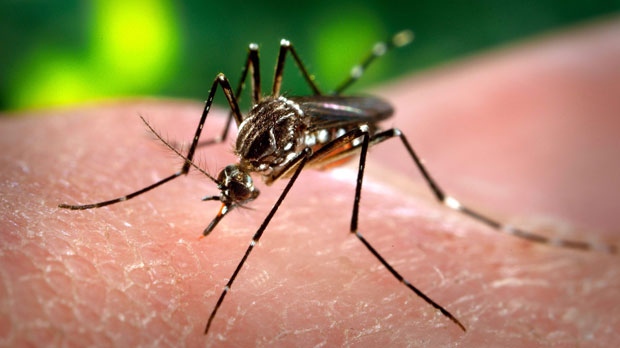Public Health Sudbury & Districts (PHSD) is once again advising individuals to protect themselves from the West Nile virus.
 A mosquito is pictured. (File photo/Centers for Disease Control and Prevention)
A mosquito is pictured. (File photo/Centers for Disease Control and Prevention)
PHSD advises that everyone is at risk of contracting West Nile virus. Mosquito populations in our district have had confirmed West Nile infections in past years and the region has seen human illness.
“When spending time outside, mosquito bites are a reality,” said public health officials in a news release.
“Preventing mosquito bites is important to protect yourself and your family.”
Symptoms of West Nile virus infection can range from mild to severe.
“Most people infected with the virus have no symptoms while some may experience mild symptoms including fever, headache, body aches, mild rash, and swollen lymph glands,” said PHSD.
“In some cases however, the infection can affect the central nervous system and cause serious symptoms including severe headache, stiff neck, difficulty swallowing, nausea or vomiting, confusion, loss of consciousness, muscle weakness, and paralysis, in addition to high fevers.”
In severe cases, the West Nile virus infection can be fatal.
Although the overall risk of becoming infected with West Nile virus is low, public health officials provided a list of simple measures that can be taken to protect against mosquito bites:
- Use an insect repellent approved by Health Canada, containing either DEET or icaridin, and follow the application instructions on the package.
- Stay indoors, if possible, from dusk to dawn when mosquitos are most active.
- Wear light-coloured clothing, including long sleeves, long pants, socks, and a hat whenever you are outdoors.
- Check your window and door screens to ensure that there are no tears or holes for mosquitoes to get through.
- Consider the use of mesh “bug jackets” or “bug hats.”
Officials also recommend individuals try to reduce mosquito breeding areas by changing or removing standing water at least once a week from areas such as:
- bird baths,
- old tires,
- containers,
- rain barrels,
- flowerpot saucers,
- swimming pool covers, wading pools,
- clogged gutters and eaves troughs,
- clogged drainage ditches,
- small containers like cans or bottle tops
- and unused children’s toys.
PHSD will continue to monitor for the West Nile virus in the region and will perform trapping and testing of mosquitoes starting in June.
For more information on the West Nile virus, visit the PHSD website.







